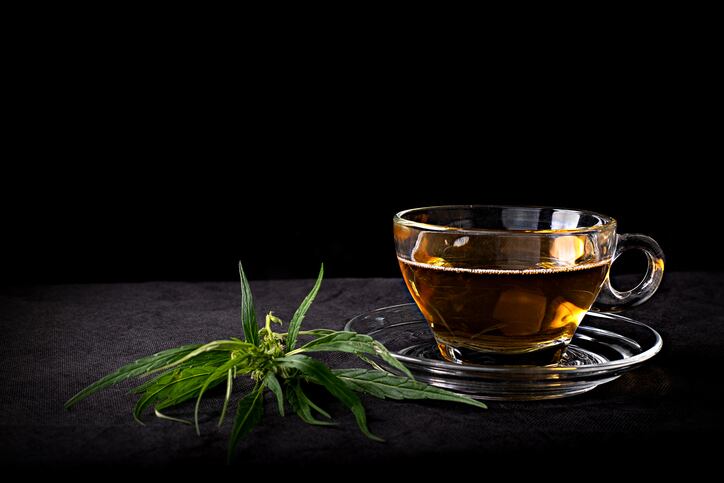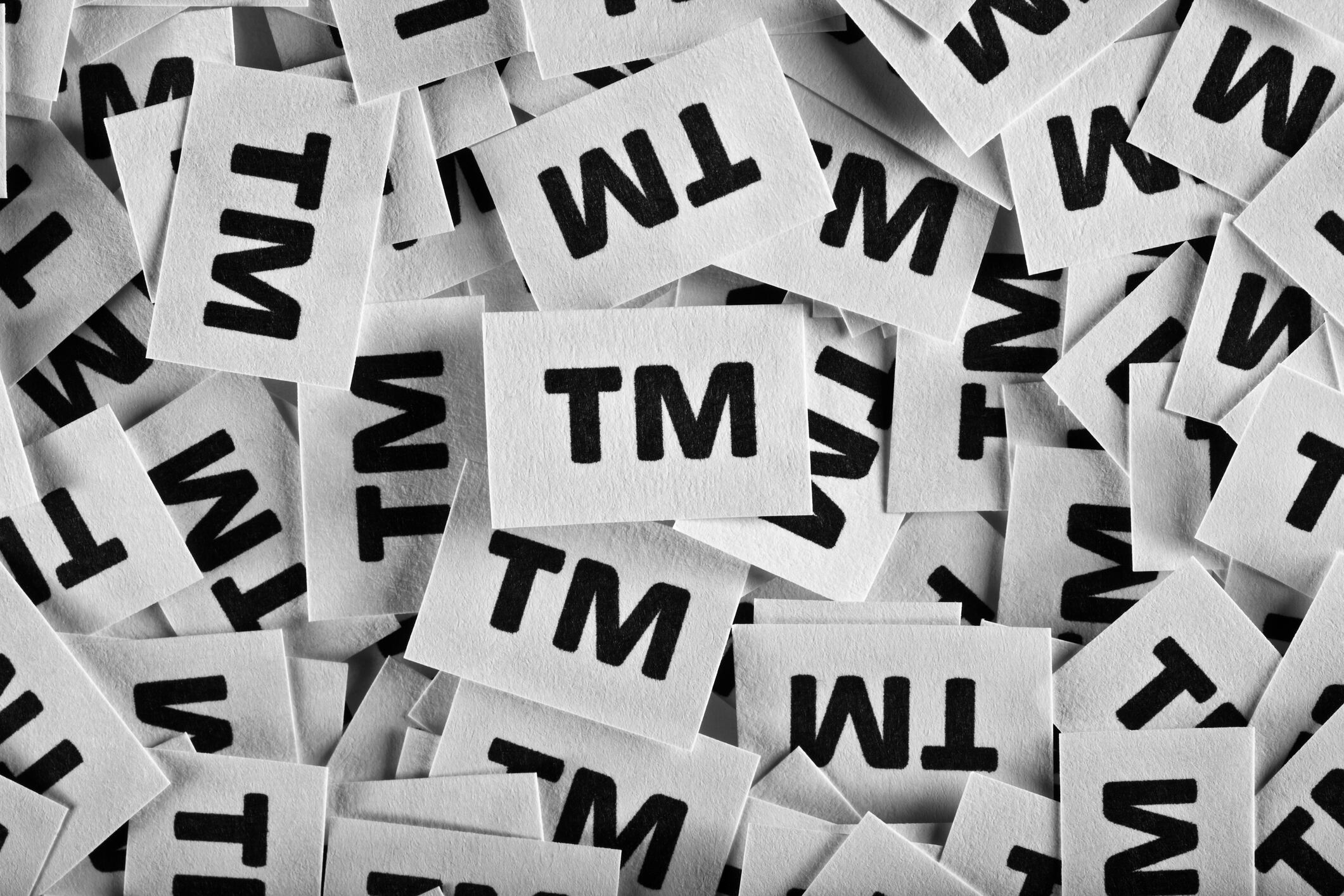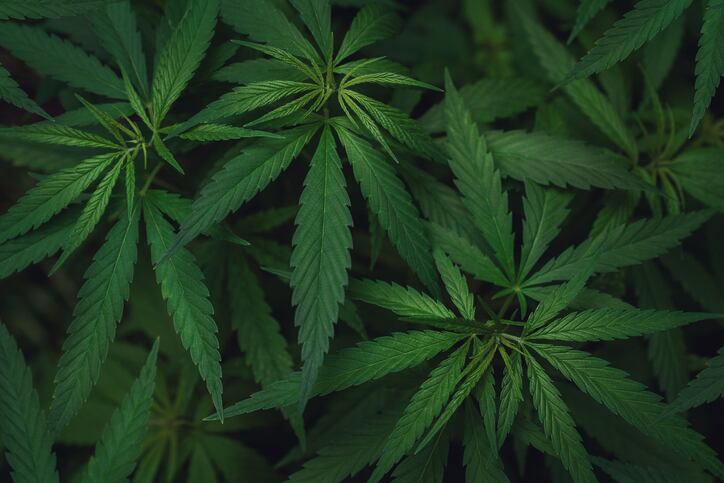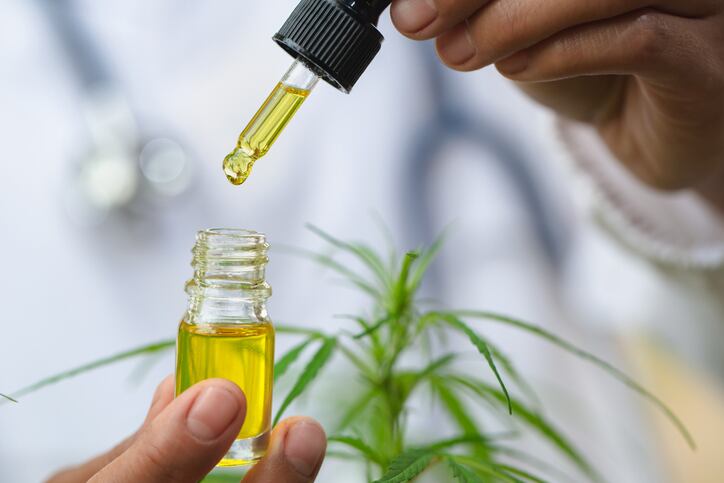Leafreport.com sent several CBD-infused coffee and teas to the lab. The peer-reviewed watchdog said that over half contained the wrong amount of CBD.
Leafreport recently purchased 29 CBD-infused tea and coffee products and sent them for independent testing at SC Labs. The results revealed the products were off from the labeled CBD content by anywhere from 11.5% to 62%.
The products were graded on accuracy. For an A grade, products have to contain cannabinoid levels within 10% of the advertised amount. In other words, CBD products should contain anywhere from 90% to 110% of the amount stated on the label to be considered accurate.
For a B grade, products must fall within 20%, for a C 30% and for an F, more than 30% of what is stated on the label.
Findings
Of the 29 products tested, 14 (48%) got an A, 8 (27.5%) got a B, 1 (4%) got a C, and 6 (20.5%) received an F. The report also found that 11 of 14 products (79%) who claimed to contain broad or full-spectrum hemp extract were accurate, while the remaining 3 only had CBD.
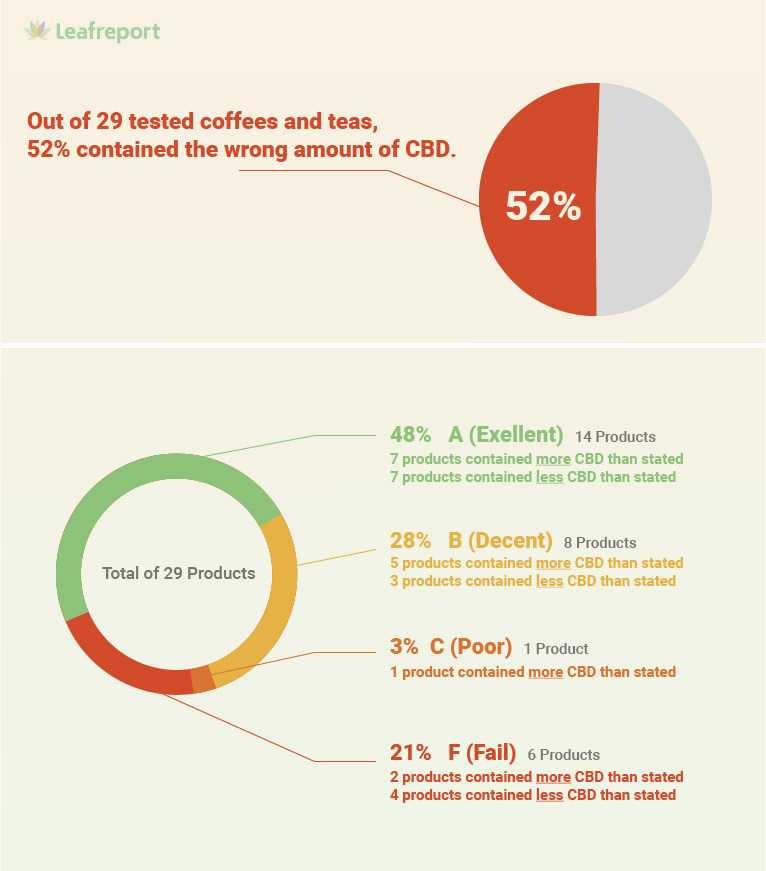
In addition, three hemp-containing teas and coffees that didn’t claim to provide a specific amount of CBD were put under the microscope. The tests found CBD and other cannabinoids in all three.
Last year the watchdog put 22 CBD-infused beverages to the test, finding that 54% of those products tested contained less CBD than advertised and 18% received an A score.
“In our 2020 report on CBD beverages, only 18% of the products got an A score. With this tea and coffee report, 48% of the products got an A. That means there is some improvement in this field, though still a long way to go,” said Lital Shafir, head of product at Leafreport.
Formulating with CBD
The report noted that manufacturers appear to be getting better at formulating CBD tea and coffee products. So what are they doing to up their formulation game?
“We think it’s the result of more experience. Infused products like tea and coffee are harder to make, especially if they’re in liquid form. With more time, manufacturers are doing a better job of infusing these products with precise amounts of CBD,” said Shafir.
Shafir explained that many of the challenges manufacturers face boil down to whether the product is dry or liquid.
“Dry products are easier to make. That’s especially true for CBD tea made with whole hemp leaves instead of an extract. With liquid products, you have to figure out a way to mix the CBD because it’s not water-soluble, which usually means using nanotechnology. Another difficulty with liquid products is that they usually contain much smaller amounts of CBD, so being off by even a few milligrams can have a big effect on the product’s accuracy,” she said.
Does reputation, price matter?
“There was some association because most of the reputable CBD brands received an A or a B for their products. But there were also a couple of well-known brands that didn’t do as well, so the association wasn't as strong as we had hoped,” said Shafir.
She added that like previous reports indicated, higher price tags don’t translate to accuracy.
“We didn’t find an association between price and score. That is something we also see in our pricing reports, expensive brands don't always get good scores from Leafreport so being more expensive doesn't guarantee the quality.”
Industry steadily improving
“Clearly, there’s plenty of room left for improvement since over 50% of the tested teas/coffees didn’t receive an A. However, judging from our reports over the years and other published data, CBD products are getting better in quality over time,” said Shafir.

